In the ever-evolving world of tech, programming projects are the playground where creativity meets logic. Whether you’re a seasoned coder or just starting out, diving into a project can be the spark that ignites your passion for coding. Think of it as a digital buffet—there’s something for everyone, from building a quirky game to automating mundane tasks.
But let’s be real, it’s not just about flexing those coding muscles. It’s about the thrill of problem-solving and the satisfaction of seeing your ideas come to life. Plus, nothing says “I’m a tech wizard” quite like sharing your latest project with friends and colleagues. So grab your keyboard and get ready to embark on a journey filled with challenges, triumphs, and maybe a few coffee-fueled late nights. After all, who wouldn’t want to turn a few lines of code into a masterpiece?
Table of Contents
ToggleOverview of Programming Projects
Programming projects encompass a vast array of activities that vary in scale and complexity. These endeavors allow individuals to apply coding skills in practical, engaging ways. From building simple applications to complex systems, each project serves as a unique opportunity for skill enhancement.
Game development stands out as a popular choice among enthusiasts. Developers create interactive experiences that challenge their creativity and technical expertise. Similarly, task automation projects streamline repetitive tasks, offering practical benefits in efficiency. Many programmers find satisfaction in automating everyday workflows using small scripts or applications.
Web development projects range from designing static websites to implementing dynamic web applications. Each project contributes significantly to understanding frameworks and technologies like HTML, CSS, and JavaScript.
Mobile app development represents another engaging field. Participants learn how to build applications for platforms like Android and iOS. Tools such as React Native and Flutter facilitate cross-platform development, broadening the appeal of this domain.
Data visualization projects allow programmers to transform raw data into insightful visual representations. These projects underscore the importance of libraries like D3.js and tools like Tableau in presenting information clearly and creatively.
Collaborative projects encourage teamwork among developers. By engaging in open-source contributions or group-oriented tasks, team members enhance their communication skills while learning from one another.
By participating in various programming projects, individuals deepen their understanding of coding principles. Each completed project fosters a greater sense of accomplishment and mastery, creating a compelling pathway for further exploration in the world of programming.
Types of Programming Projects

Different types of programming projects exist, each offering unique learning opportunities and challenges. Engaging in these projects fosters skill development and creativity.
Personal Projects
Personal projects allow developers to explore their interests without any outside pressure. Developers often pick topics that resonate with them, like creating a personal website or building a tool that solves a specific problem. The motivation behind these projects sometimes stems from a desire to learn new technologies or refine existing skills. Successful personal projects often lead to a portfolio piece that showcases creativity and technical ability. Completing these projects not only boosts confidence but also enhances problem-solving skills, providing a sense of accomplishment.
Collaborative Projects
Collaborative projects emphasize teamwork and communication among developers. These projects typically involve multiple contributors who bring individual strengths to the table. Developers learn to navigate collaboration tools, establish coding standards, and manage version control. Different perspectives often enrich the development process, leading to innovative solutions. Participants develop not just technical skills but also project management abilities and experience in handling conflicts. The combined effort usually results in a polished final product that benefits from diverse input and creativity.
Open Source Projects
Open source projects invite developers to contribute to community-driven initiatives. Participants can join platforms like GitHub to find projects that align with their interests. Engaging with open source fosters collaboration among a global network of developers. Some benefits include exposure to real-world coding practices and the opportunity to implement contributions that impact users worldwide. Working on open source allows individuals to create a network, receive feedback from seasoned developers, and potentially enhance their resumes. These projects also help improve understanding of software development lifecycle processes and coding best practices.
Best Practices for Programming Projects
Effective programming projects require careful consideration and best practices to ensure success. Prioritizing these practices leads to high-quality outcomes and fosters a productive coding environment.
Planning and Scope
Defining the project scope is crucial for success. It establishes clear boundaries and goals, helping developers manage time and resources effectively. Developers often benefit from creating a roadmap that outlines milestones and deliverables. This proactive approach aids in identifying potential challenges early. Clear objectives keep the focus on the end goal, ensuring projects remain on track and aligned with initial intentions.
Version Control
Implementing version control significantly improves project management. It allows developers to track changes, collaborate seamlessly, and revert to previous code versions when necessary. Utilizing platforms like Git enhances teamwork by enabling multiple contributors to work simultaneously without conflicts. Regularly committing changes ensures proper documentation of the project’s evolution. Following a branching strategy further organizes development processes, facilitating clearer collaboration.
Testing and Debugging
Conducting thorough testing and debugging is essential for a polished final product. Users benefit from early bug detection through continuous testing practices. Developers should employ automated testing tools alongside manual testing to cover various scenarios. Debugging systematically throughout the coding process enhances software reliability and performance. Prioritizing this step reduces the chance of serious issues post-launch, ensuring a smoother user experience.
Tools and Technologies for Programming Projects
Programming projects thrive on the right tools and technologies. These resources streamline development, enhance collaboration, and improve overall productivity.
Integrated Development Environments (IDEs)
Integrated development environments play a critical role in programming efficiency. Popular IDEs like Visual Studio Code, PyCharm, and Eclipse offer features such as syntax highlighting, debugging, and code completion. Developers can write, test, and debug code within a single application, significantly reducing context-switching. Customization options allow users to tailor their setup to personal preferences, enhancing comfort and speed. Utilizing built-in terminal features also simplifies running scripts and accessing version control.
Version Control Systems
Version control systems are essential for collaborative programming projects. Git stands out as the leading platform, offering capabilities like branching, merging, and commit history tracking. Teams can work on different features simultaneously, minimizing conflicts. Using services such as GitHub or Bitbucket promotes collaboration through pull requests and code reviews. These platforms also facilitate issue tracking, allowing teams to manage tasks efficiently. Understanding version control fosters better project management and strengthens coding practices.
Project Management Tools
Project management tools help organize tasks and monitor progress effectively. Software like Trello, Asana, and Jira enables teams to create task boards and assign responsibilities. Clear visibility of project timelines ensures that deadlines are met, while comments and notifications enhance communication. Agile methodologies can be implemented through sprints, promoting iterative development. Integrating project management tools improves accountability and keeps everyone aligned on objectives.
Engaging in programming projects can be a transformative experience for both novice and seasoned developers. The blend of creativity and logic not only hones technical skills but also fosters a sense of accomplishment. By exploring personal, collaborative, and open source projects, individuals can discover their unique coding style and preferences.
Utilizing the right tools and following best practices ensures that these projects are not just educational but also enjoyable. As developers tackle challenges and bring ideas to life, they contribute to a vibrant community that thrives on innovation and collaboration. Embracing the journey of programming projects paves the way for continuous growth and exploration in the ever-evolving tech landscape.




